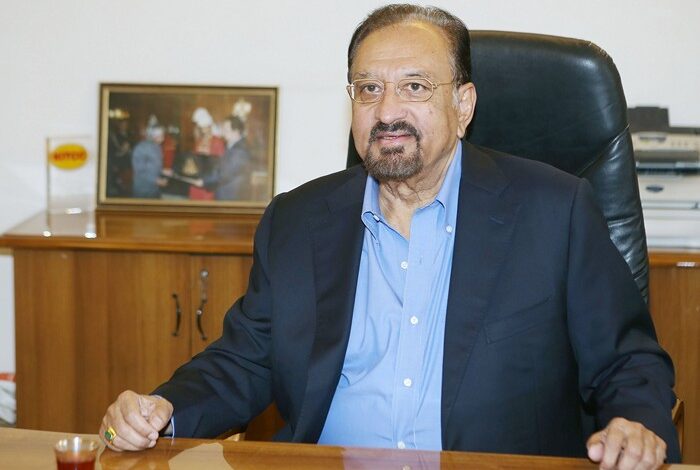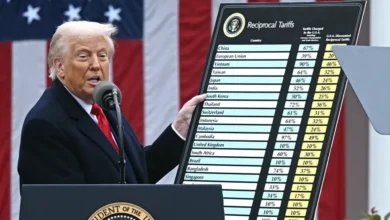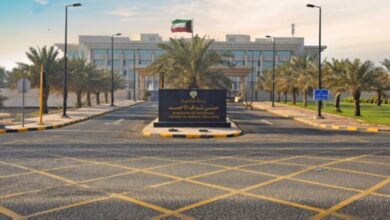
The Times Kuwait Report
While passion, as a word and a virtue, has somewhat dulled in impact due to overuse, it continues to remain the cornerstone of successful enterprise. Passion permeates into every facet of a venture, from fueling new ideas to getting a team to commit to a common purpose, from determining the work culture to providing the stamina needed to move forward.
Over a career spanning close to six decades, Dhiraj Oberoi has helmed Kuwait Indo Trading Company, a food brand beloved by generations who have grown up in Kuwait, for whom the crisp crackle of the KITCO chip can bring on a bout of heady nostalgia. It is an inexhaustible supply of pure passion that has enabled him to not only build a strong and dynamic business but also successfully overcome the many challenges he encountered along the way.
Oberoi first came to Kuwait from New Delhi around the age of 16 while on school vacation. His father, who ran a grocery shop in Kuwait, fell ill and he was called upon to shoulder the responsibility of running it. Giving up the opportunity to continue his education he accepted without any resentment the hand fate had dealt him and stepped into the business. In the next 54 years, the grocery shop he took over would grow to become a wholesale business, he ventured into distribution before becoming a manufacturing pioneer in the regional food industry. Today, the company has an assortment of offerings from chips to biscuits and cakes, with factories located in Kuwait, Qatar, Saudi Arabia and the UAE. In addition to all this, a never complacent and always-on-the-move Oberoi took the company public two years ago and is happy that Mezzan Group is now listed on the Kuwait Stock Exchange.
Oberoi shared his motivations behind taking the leap from trading to manufacturing, and introducing their first product, the KITCO Rings, “When you are in the food business, the lower-end is grocery and the upper-end is manufacturing. As you are looking to grow in the business, manufacturing your own products is the epitome. We had visited factories when we were distributors for certain products but we didn’t know much about manufacturing. We were always traders, so getting into manufacturing was a new ballgame.”
“It was scary at first because as humans, we always think, what if it fails?” He shared that the learning curve was steep, and finances were a challenge, “But we have been very fortunate that our partners, the AlWazzan family, is very respectable, they gave us their full support and my brother Sudhir Oberoi joined me in the business four years later and his contribution has been no less. KITCO Rings was the first, not only in Kuwait but in the entire region.”
Speaking of the early days, he shared that doing business in Kuwait then was very relaxed. “Communication was very slow, one of the fastest means at our disposal was the telegram. The pace of doing business was very relaxed. After you first made an inquiry, it would take three or four days for you to receive a response, and then you would probably go back to them and negotiate a better price and they would come back with another offer. So finalizing a deal could easily become a ten-day process. But they were happy days with a lot more simplicity.”
Reminiscing, he adds, “In our time, a shoe was a shoe. If it got torn, you would try to go to the cobbler and fix it, there used to be value and attachment to our possessions. Today, everything is so disposable.”
“There was a lot more togetherness, and social interaction with the people around you, and a lot more love and affection. I feel that that is now diminishing. I am not saying that it was not a materialistic society back then, but I do see a big difference now. A business promise or word for a deal, a yes or no, was final. That is no longer how things are done,” he continued.
Contrary to the belief of many that Kuwait is a first-movers market, Oberoi shared that any advantages that pioneering firms enjoy can be easily lost, “It is a race, but the winner is not he who runs the fastest, but he who runs with endurance, principles and ethics. Without principles and ethics, no matter how fast you run, you will fall.”
The company expanded through the 70s and 80s even as the Kuwait economy boomed and pushed forward, and the market grew as a result of advancements made in worldwide logistics. The food industry saw a rise in competition from not only local producers but regional ones as well. Oberoi adjusted quickly to every turn of the market, even as the choice for consumers grew from two brands in a bakala to multiple shelves of aisles in a hypermarket. “You have to work with the demands of the time. I was a salesman on foot for seven years and today selling a product requires a different kind of finesse because the consumer first buys through the eyes.”
The Iraqi invasion of Kuwait brought huge setback to the company. “The invasion really pulled us back many years. Like everybody else at the time, we suffered huge losses. The Iraqi soldiers would destroy what they couldn’t take away. Our running factories were halted and the equipment rusted and spoiled.” But Oberoi was resolute in his optimism after the liberation of Kuwait, “We never looked back with a lot of sorrow. What is gone, is gone. It is very important to have a positive outlook in life.”
Oberoi underscores that passion is paramount to success in business or any other pursuit in life. “When you have passion for something, you are focused on it. Thinking about your business is a 24-hour job and the mind does not switch off when you reach home. New ideas come as long as your mental computer is able to receive it. When you first start out there is a need to work hard in order to earn money. But by the time you start earning well, the work becomes a habit and less about the money.”
He urges young professionals and entrepreneurs to find their passion and pursue it, “The job has to be a pleasure, it is not just a means of earning a living. If you do things ethically, with hard work and passion, money follows. Don’t do something which you don’t like because the output will be mediocre. Without passion, there is nothing.”
He shares that while formulas taught in business schools worldwide focusing on price, promotions, product and placement hold true, experiential knowledge is as important. “There is no fixed formula to meet the challenges that you will face. But experience and hard work go a long way. I have only seen people who have failed lean more towards luck. But those who have succeeded have done so through hard work and more importantly, continuous hard work.”
Oberoi firmly believes that teamwork indeed makes the dream work. “Success doesn’t come solely from the leader, it comes from the team. But unfortunately we only focus on the personalities at the top. I have high regard for my staff and the contribution they have made to our success.”
He defines a good team as being one where individuals feel a sense of ownership with the company and do not consider themselves as mere employees. “It is important to grow where you are. In our company, the guy who comes as a salesman becomes a sales manager. It is one of our unwritten policies that people who are capable have to come up the ranks.”
When not pursing his passion for business, Oberoi spends his time with family as a grandfather of seven. Always the optimist, he is hopeful that the Mezzan group will grow to become much bigger than it is, “We have not stopped thinking about growth or working for it, the passion for more is as fresh today as when I first began.”












